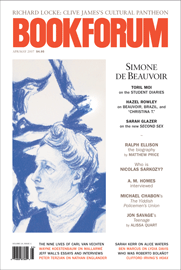
“You know, all my life, my favorite kind of story is one that starts early in the 20th century, and then works its way on down toward modern times.” Kim Deitch, both the author of and a protagonist in Alias the Cat, explains exactly where he intends to take us in his latest book—and more than delivers. A revered underground cartoonist whose work is steeped in the lore and traditions of early animation, Deitch draws loopy, crowded, psychedelic stories that start where the Fleischer brothers’ Betty Boop and Otto Messmer’s Felix the Cat left off and add in sex, money, greed, paranoia, and other obsessions.
Like those of his contemporary Robert Crumb, Deitch’s pages are crammed with detail. But whereas Crumb’s crosshatching forms a dense, merciless web that pins subjects to the page, Deitch’s lines float and warp, wrapping everything in the same slightly hallucinogenic glow. It’s a style perfectly suited to his world, in which an island cult that pacifies angry volcano gods with stuffed toys is no weirder than the author’s subway trip to Brooklyn with his wife. With the feel of a loose thread that unravels an entire sweater when pulled, Deitch’s stories start off low-key and quickly escalate. In this case, his wife’s collection of vintage cat memorabilia sparks a flea-market encounter that sends Deitch on a search for the history behind an enigmatic newspaper strip called Alias the Cat. Who drew it? What was its connection to a film serial of the same name? How was it linked to a New Jersey political scandal?
Waldo, a cartoon feline reminiscent of Felix, is the enigmatic key to this and many of Deitch’s other works from the past twenty years. Felix had a vaguely menacing, unsettling air of mania to his tricks, which explored the nature of cartoons themselves, often breaking the fourth wall to address the viewer directly. Deitch’s Waldo is this idea to the nth degree: He is a Felix who actually steps off the filmstrip into the real world. Deitch’s obsession and personal demonic nemesis, Waldo embodies the Depression era’s hard-boiled yet whacked-out, try-anything-once entertainment industry. Like a nightmare that continues even after waking, he cooks up amoral get-rich-quick rackets that inevitably collapse and then disappears without a trace. In this book, Waldo reappears, having found a new patsy to beguile, and decides to let Deitch in on a little secret: “Ya know, what with my subtle vibrations and all, it usually takes someone pretty far gone in dementia to see me; or the occasional sage. And I gotta tell ya, Kim . . . there ain’t a whole lot of doubt in my mind which one you are.” Could he be right? Or is this more misdirection? By the time we reach the end of the journey, it’s impossible to untangle the strands of Deitch’s narrative. Which bits are real and which feverishly imagined? You’ll just have to start at the beginning and read it all over again.
